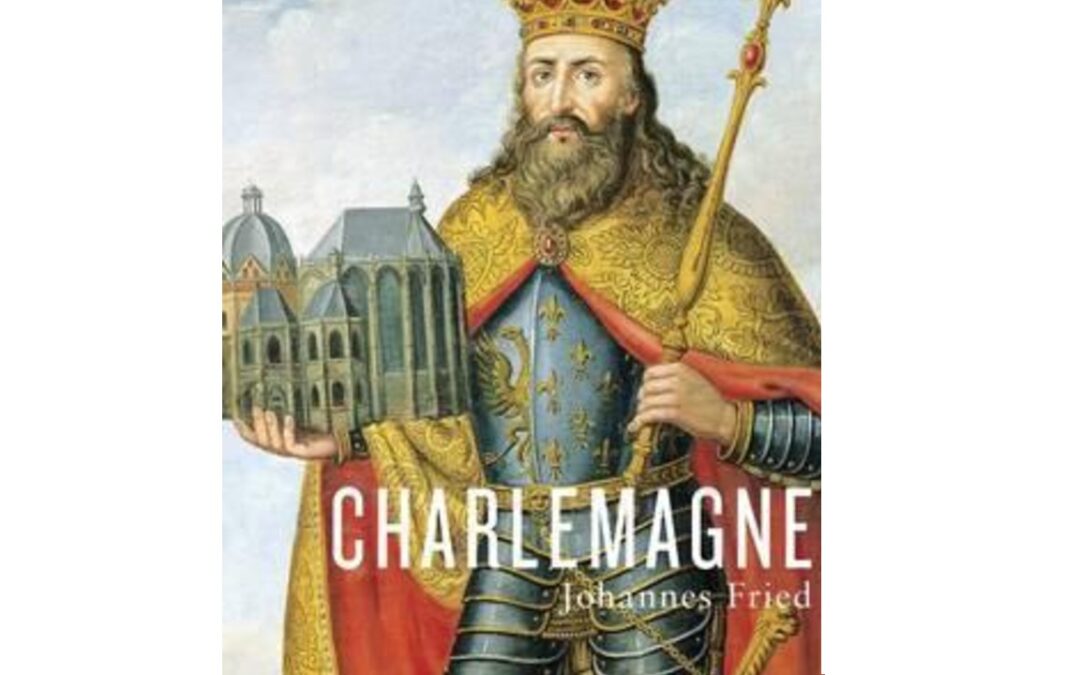
Book Review — Charlemagne
This was a massive work about the man who is often called “the father of Europe”. I can only cover a fragment, and I may not even do a good job of this. When Charlemagne died in 814 AD (I have never liked CE) he left behind a dominion, the Frankish Empire and not to mention a legacy, the first since the end of the Roman Empire. Charlemagne was the Frankish King, and in 800 the first Emperor of the Holy Roman Empire. He is a major figure in world history, yet nothing is known of his personality, less about the man himself. Much has been lost in the over 1200 years since his death. You could say, Christendom was established under him. He was determined to make sure the people he conquered were baptized into the Catholic faith. I couldn’t help feeling, few people may have had an option. Yet, for Charlemagne, this was a way to unite the people of the lands he ruled. He had plenty of successes with his wars with the Saxons, the Slav expeditions, and later the Moors. There were also defeats as well, which beyond scope of this review.
Charlemagne was a devout Christian King. He attended Mass daily. He helped enhance the pope’s influence. He helped establish that the pope was beyond the reach of temporal justice, unless a secular power forcibly removed him to face the court, which could then be considered illegal. Learning returned, and Latin revived to become the official language of the Church. He was involved with the liturgy in 784-785. The constitute parts of this Mass which were the basically corresponded to the Tridentine Mass: The Introit, the Kyrie eleison, the Gloria, the Collects, the Epistles, the Graduals, the Gospels, the Offertory, the Sanctus, Anguis Dei, the Lords prayer, the Pax Domini, the Parefatio communis (the Preface of the Mass) which all remained enforced until the Second Vatican Council of 1962-1965. What a huge loss of tradition there. He wanted more education in Latin among the monasteries and eventually among the people he ruled. He wanted input into the various councils, including the wording of the creed of the Holy Spirit proceeding from the Father and the Son. Under him, the whole Bible was able to be brought together as one whole book for the first time.
He also helped bring about the calendar we all enjoy today that is internationally the most widely used system of establishing time. He established laws that laid the foundations for our laws today. He did care deeply about the poor. I think he did fear God. The Last Judgment and the End Times, especially whether it would occur during his lifetime or soon afterwards did preoccupy his thoughts. Yet he was far from perfect and I say orthodox. While he believed in the laws, the commandments, of wanting the populace to remember the Lords Prayer and the Nicene Creed, he himself didn’t always follow them. He did enjoy the pleasures of this life. He had five wives, and a few concubines. He could be a violent warrior. In his whole life, he knew only a couple of years of peace. He could be brutal, especially when dealing with potential successors to his throne. Yet he was concerned with wanting peace too. He tried, with his son, to swear an oath to this affect to agree with his wishes. Yet his successor, Louis I the pious (who was anything but) never kept his promises.
This book is more about the times, and the history this king and emperor lived in. He would lay the foundations for the Middle Ages, and eventually modern Europe. His empire was willing to trade with the Muslim held Africa and Constantinople. This review is only a taste of what the book is. His reign most definitely helped bring about a huge cultural revival with advances in scholarship, literature and philosophy. This was not one of the easiest reviews I have done as I relied, not on notes this time but the worst thing of all, my memory, and briefly checked both the book and internet, so any errors are my own. I never realized what a huge historical figure Charlemagne was.
Author: Johannes Fried. Translated from German to English by Peter Lewis
Minimum Age: 16+
Type of Book: History/Biography
Book Length: 673
Published: 2016. Originally published as Karl der Grosse
Note: This book review is from Carl Strehlow, a valued member of Coffin Nation.
____________________________________________________________________________________________________________________________
Tweet to Patrick HERE
Follow Patrick on Facebook HERE
Subscribe to the Podcast and the YouTube Channel
(Click on the images and then click on subscribe)
Apple/Mac Users:
Android Users:
Subscribe to the YouTube Channel:
While you are there, please leave an honest review.





